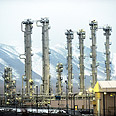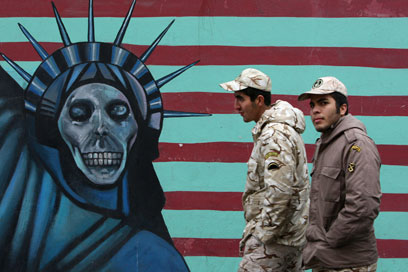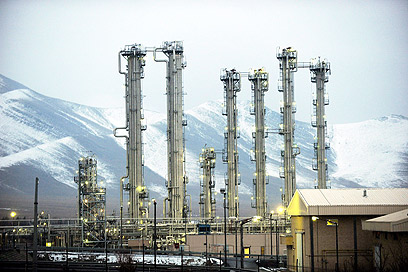
US Senate OK's sanctions on Iran central bank
National legislative body votes unanimously to penalize foreign financial institutions that do business with Iran's central bank
WASHINGTON – The US Senate unanimously approved tougher sanctions against Iran on Thursday, voting to penalize foreign financial institutions that do business with Iran's central bank, the main conduit for its oil revenues.
The Senate acted despite warnings from Obama administration officials who said threatening US allies might not be the best way to get their cooperation in action against Iran.
Related stories:
- Ex-intel chief: Iran has enough material for 4-5 nukes 'We'll give up nukes if Iran does same' EU tightens Iran sanctions; mulls oil ban
Administration officials said they were indeed looking to sanction Iran's central bank, but in a calibrated manner, to avoid roiling oil markets or antagonizing allies.
The United States already bars its own banks from dealing with the Iranian central bank, so US sanctions would operate by dissuading other foreign banks from doing so by threatening to cut them off from the US financial system.
The Senate voted 100-0 for an amendment sponsored by Senator Robert Menendez, a Democrat, and Senator Mark Kirk, a Republican, that would allow the US president to sanction foreign banks found to have carried out a "significant financial transaction with the Central Bank of Iran."
"We seek to break the stable financial intermediary in between Iranian oil contracts and the outside world, so that it will just be easier to buy oil from elsewhere," Kirk said in debate this week.
Careful steps
On Nov. 21, the United States, Britain and Canada announced new sanctions on Iran's energy and financial sectors, but the Obama administration stopped short of targeting Iran's central bank, a step that US officials said could send oil prices skyrocketing and jeopardized global economic recovery.
"The Obama administration strongly supports increasing the pressure on Iran, and that includes properly designed and targeted sanctions against the central bank of Iran, appropriately timed as part of a carefully phased and sustainable policy toward bringing about Iranian compliance with its obligations," US Undersecretary of State Wendy Sherman told the Senate Foreign Relations Committee earlier on Thursday, several hours before the Senate vote.
While the Obama administration steps carefully, some countries in Europe are seeking to push forward a Europe-wide boycott of Iranian crude imports. EU foreign ministers in Brussels failed on Thursday to move forward with a plan backed by France and Britain to ban shipments, but agreed to examine expanding sanctions.
Meanwhile, US and Israeli delegations, headed by US Deputy Secretary of State William J. Burns and Deputy Foreign Minister Daniel Ayalon, met Thursday in Washington to continue the semi-annual US-Israel Strategic Dialogue.
The Strategic Dialogue is an opportunity for the United States and Israel to discuss at a senior level the issues that affect our mutual security and partnership.
"Israel and the United States are completely coordinated in their positions vis-à-vis Iran," Ayalon told reporters after the meeting.
"The dialogue was productive and thorough, and I expect to see results in the upcoming weeks," he said.
Israeli Ambassador to Washington Michael Oren added that "the Americans are determined to prevent Iran from developing nuclear weapons and we trust the determination of President Obama."
In a statement following the meeting, US Deputy Secretary of State William J. Burns noted: "Iran’s continued noncompliance with its international obligations related to its nuclear program, as well as its continued support for terrorist organizations, are of grave concern to our two countries and the entire international community.
"Continued efforts by the international community are critical to bringing about change in Iranian behavior and preventing Iran from developing a nuclear weapons capability," the statement read.
Reuters contributed to this report
- Receive Ynetnews updates directly to your desktop












